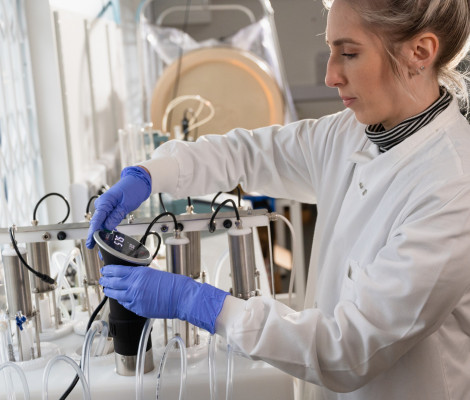
Biogas facilities
Our biogas facilities enable new/potential users of anaerobic digestion (AD) and biohydrogen to characterise their feedstock to establish its suitability for production of high gas yields.

Gas chromatography (GC) is a flexible technique that allows separation and quantification of chemical substances found within a complex mixture. For example, it can be used for quantification of bioethanol produced during fermentation of biomass-derived sugars or determination of the fatty acid profile in oilseeds.
Specifically, gas-liquid chromatography (GLC) – involves a sample, containing the chemical(s) of interest, being vaporised and injected onto a chromatographic column. The sample is transported through the column by the flow of inert, gaseous mobile phase. The column itself contains a liquid stationary phase which coats the walls of the chromatography column. The chemicals being analysed interact with the stationary phase, with each chemical travelling through the column in a different time – this is known as the retention time. The analytical value of GC is based on the comparison of retention times of different compounds.
Technical specification: the gas chromatograph we have is a HP5890 series II capillary GC, equipped with a 100-sample autosampler and flame ionisation detector (FID). The FID allows detection of most organic chemicals or compounds. Electronic data capture and analysis is performed using DataApex Clarity software.

Our biogas facilities enable new/potential users of anaerobic digestion (AD) and biohydrogen to characterise their feedstock to establish its suitability for production of high gas yields.
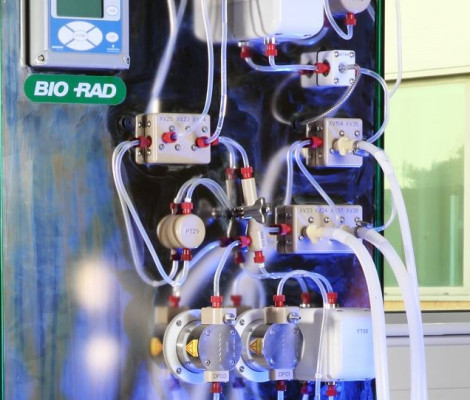
Used for purification and separation of complex organic mixtures.
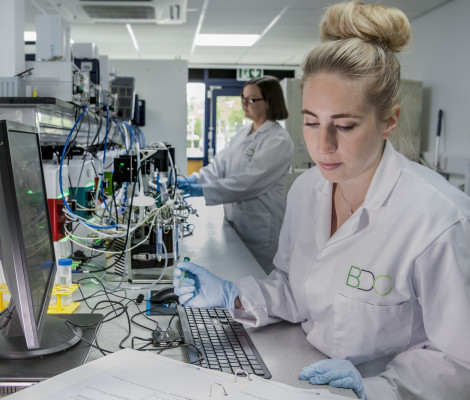
We have several bioreactor systems, which allow the development and scale up of fermentation processes from 500 mL to 30 L.
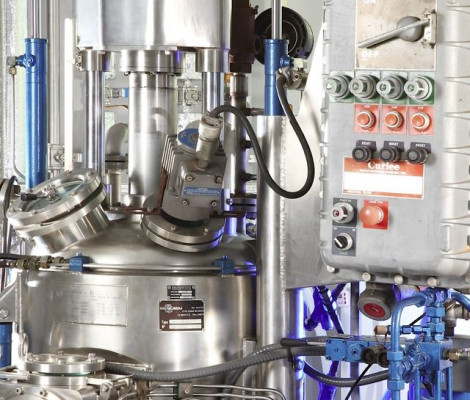
Our Guedu filter drier is used for separating solids and liquids from each other, before drying the products.
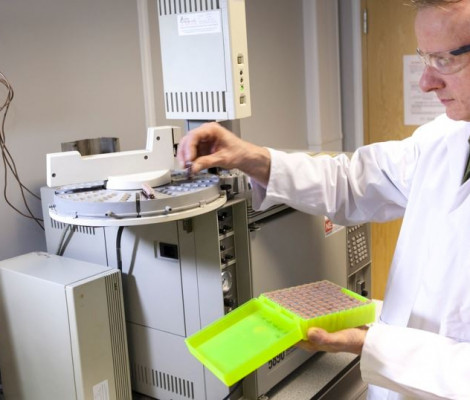
Gas chromatography (GC) is a flexible technique that allows separation and quantification of chemical substances found within a complex mixture.
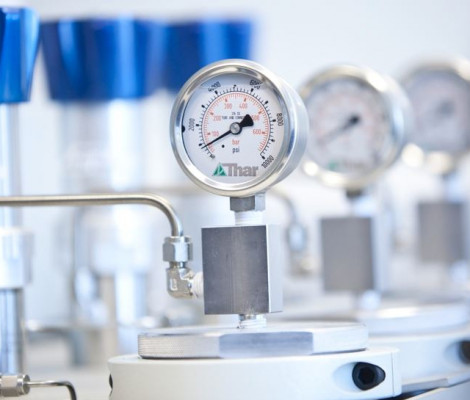
The Buchi Kilo Suite (ATEX Rated 65 L vessel) pilot scale glass reactor suite has a 65 L capacity, capable of operating under various modes including reaction, distillation, crystallisation and extraction.
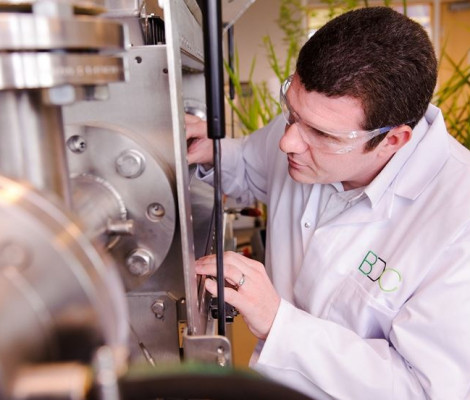
Our pyrolysis microwave allows heating up organic materials in the absence of oxygen (pyrolysis) for a wide range of industrial applications such as energy and chemicals production.
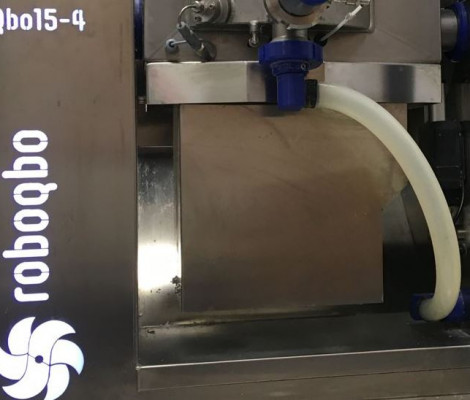
The RoboQbo 15-4 is a Universal Process Machine capable of processing high solid loading slurries upto 30% w/w (dependent on feedstock).
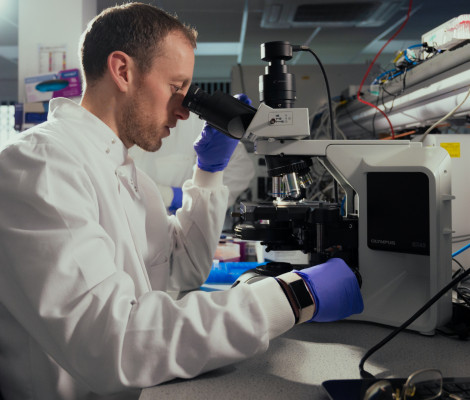
Our microbiology laboratory offers a range of equipment allowing users to safely handle, store and work with a variety of aerobic and anaerobic microbes, at ACDP hazard category II level.
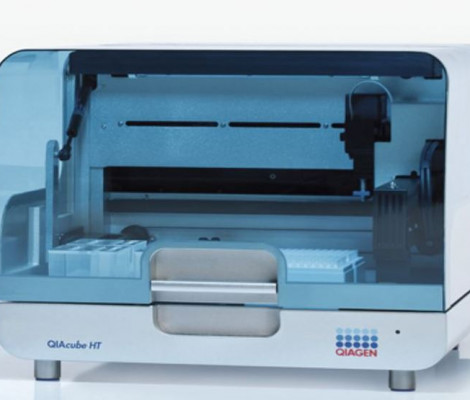
Qiagen QIAcube HT is an instrument for an automated mid- to high-throughput nucleic acid purification in 96-well format using silica membrane technology.

Our supercritical fluid extraction system at can extract chemical compounds from biomass materials.